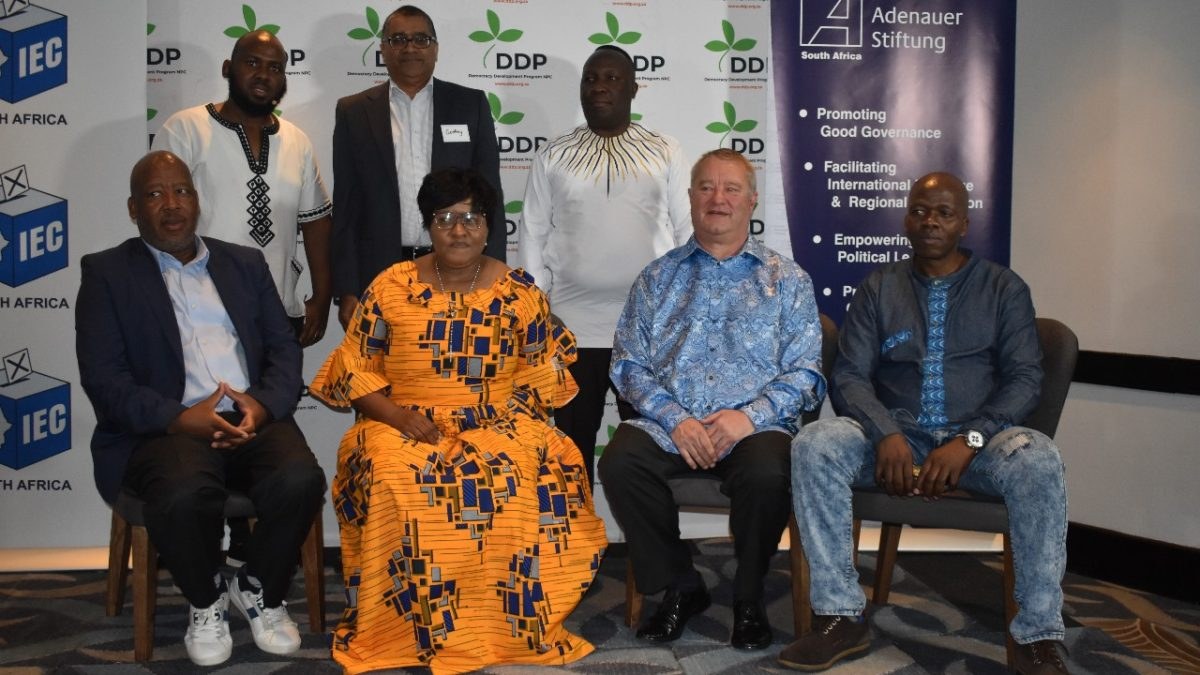Reflections on the Electoral Act in the Context of Present Political Dynamics – Exploring Possibilities.

On 4 October 2023, DDP in collaboration with the Centre for the Advancement of Non-Racialism and Democracy (CANRAD) hosted a workshop with the theme Reflections on the Electoral Act in the Context of Present Political Dynamics – Exploring Possibilities.
Matters discussed in the meeting included, the advent of democracy in 1994 set South Africa on a new pedestal politically. There was euphoria which engulfed the entire nation. Politicians used this opportunity to convert from being liberation movements to becoming political parties. New parties were formed. The black electorate looked forward to voting for the very first time – venturing into a space previously reserved for whites only.
While the 1994 general election was a great experiment, there was a need to enact an Electoral Act that would guide subsequent elections. This came to fruition in 1996. The Constitution of the Republic of South Africa (Act 108 of 1996) was adopted. South African lawmakers also promulgated the Electoral Commission Act (No.51 of 1996). Two years later, the Electoral Act (No.73 of 1998) was adopted.
Noticeably, these pieces of legislation did not anticipate the proliferation of political parties. Secondly, they did not foresee that with so many political parties contesting an election, chances for a single party meeting the required threshold would be significantly reduced. At the time, neither the Proportional Representation (PR) nor the Party systems were perceived to be problematic.
Almost thirty years later, the status quo has changed. Coalition governments have become a reality. Unfortunately, these forms of government are not regulated. In fact, some politicians do not seem to understand how they should be constituted, run, and sustained.
On 4-5 August 2023, Deputy President Paul Mashatile convened a National Dialogue to discuss a possible framework that would guide coalitions. However, not all political parties bought into this idea. Some interpreted it as the African National Congress’s (ANC’s) ploy to remain in power, while others alleged that the ANC and the Democratic Alliance (DA), which is the official opposition party, colluded and reached an agreement before coming to the National Dialogue – disadvantaging smaller parties.
Later in August, some key opposition parties have met to form what is now called the Multiparty Charter for South Africa. The charter, which was made public on Thursday, outlines the shared vision, priorities, and principles of the signatory parties.
The parties, including the Democratic Alliance, Inkatha Freedom Party, and ActionSA, among others, have united with the belief that the ANC will fall below 50% in the 2024 elections. This would allow for the formation of multi-party coalitions to replace the ANC in both national and provincial governments.
Beyond this though, the advent of independent candidates looking to contest for Parliament and provincial parliamentary seats has not reached the consciousness of most citizens – much is still to be explained and engaged by various institutions to communities hoping to move South Africa forward.
Key points of discussion included:
- A reflection on the Electoral Act with the view to establish its relevance today.
- Establishing why coalition governments in South Africa have failed.
- Affording the audience the opportunity to draw lessons from other countries which have successfully used coalitions.
- Capacitating the electorate on how to view coalition governments broadly – considering their advantages and disadvantages, and
- Assisting the audience in understanding the different types of coalition governments so that they could make informed decisions on the ones they would prefer and why.
Thank you to our speakers: Professor Mngomezulu (University of the Western Cape) and Mr Masego Sheburi (Independent Electoral Commission) for their contributions and insights. DDP extends its gratitude to the Konrad Adenauer Foundation for their support and CANRAD for their partnership.
